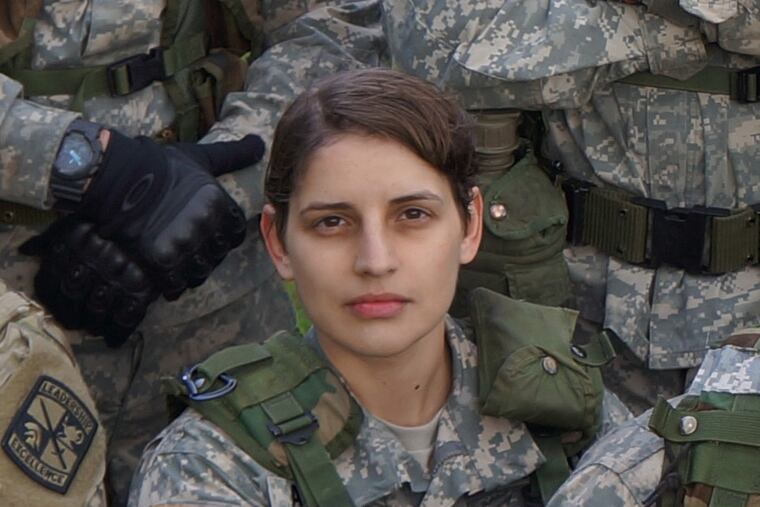I dream of serving in the military, but can’t until Biden reinstates a program for noncitizen recruits | Opinion
The MAVNI (Military Accessions Vital to the National Interest) program has been in limbo since 2017.

President George W. Bush once said: “Our identity as a nation — unlike many other nations — is not determined by geography or ethnicity, by soil or blood. Being an American involves the embrace of high ideals and civic responsibility.”
Those words ring true to me. I was born in communist Romania and grew up in Spain, but only in America did I find my true home. I love this nation so deeply that I’ve spent the last five years trying to join the U.S. military. Unfortunately, the program that allows immigrants to enlist in the armed forces — Military Accessions Vital to the National Interest (MAVNI) — has been in limbo since 2017. As a result, roughly 4,000 noncitizen enlistees have been strung along or put at risk for deportation. And new would-be recruits have no way to join up. It’s a devastating situation for those of us who dream of serving the United States, a significant loss to the armed forces, and a departure from time-honored military tradition.
The MAVNI program was introduced by immigration attorney Margaret Stock in 2008 under the Bush administration to help foreign nationals with in-demand skills or language fluency earn citizenship through military service. The program was temporarily halted between 2009-2012 after the Fort Hood military base shooting, even though the shooter was born in the U.S. and had nothing to do with MAVNI. After tightening the vetting procedures, the program was extended. Since then, more than 10,400 people have participated.
But in 2017, the Trump administration froze the program, even though 2,400 MAVNI recruits with a signed contract were already drilling in reserve units, and 1,600 more were waiting to clear background checks. Many were told they would still be admitted — only to fall out of legal status while waiting. Unable to work legally, these recruits struggled to make ends meet and lived at risk of deportation. They prayed the American military would honor its contracts.
I qualified for MAVNI in 2016, just as the program was paused. I wasn’t willing to give up on the military, either. At that time, I was an international student at the University of Pennsylvania. In order to extend my student visa, I transferred to Drexel and signed up for a host of new courses in psychology, criminal justice, and military history. I participated in ROTC for all three years. After graduating in 2019, I started a cybersecurity program at the Community College of Philadelphia. In addition to these military applicable skills, I’m already fluent in Romanian, Spanish, and Catalan, know basic French, German, and Japanese, and have recently started learning Russian, Korean, and Arabic. All of this can serve the national interest.
» READ MORE: Biden, Democrats unveil bill that would overhaul path to citizenship for millions
That’s why the Biden administration must tell the military to honor all existing MAVNI contracts and restore the program for newcomers like me. As part of this effort, the president must officially overturn the 2017 Trump administration policy that made it much harder for noncitizen soldiers to become naturalized. Citizenship in exchange for service isn’t just a long-standing military tradition; it’s something the military community actively supports. Earlier this month, the American Legion, the nation’s largest veterans service organization, called upon the Biden administration to fast-track citizenship for current enlistees and veterans.
Finally, I’d ask the president to raise age limits for MAVNI enlistees or offer age waivers to people who were unable to enroll during the time the program was paused. Many would-be recruits like myself will soon be ineligible to apply — though we would have years ago if given the chance.
I’ve written letters expressing my concerns — and my desire to serve — to Sens. Bob Casey and Pat Toomey. I’ve even asked my congressman to draft a private bill, which will allow me to enlist. There’s not much else I can do at this point. I can only say that, if and when the Biden administration reinstates MAVNI, I would immediately enlist.
As President Barack Obama said, “The long sweep of America has been defined by forward motion, a constant widening of our founding creed to embrace all, and not just some.” I wasn’t born on American soil, but I’m eager to fight for this soil nonetheless. I hope our new president can make that dream come true.
Joey Antohi studies cybersecurity in Philadelphia and aspires to be a U.S. Army officer.